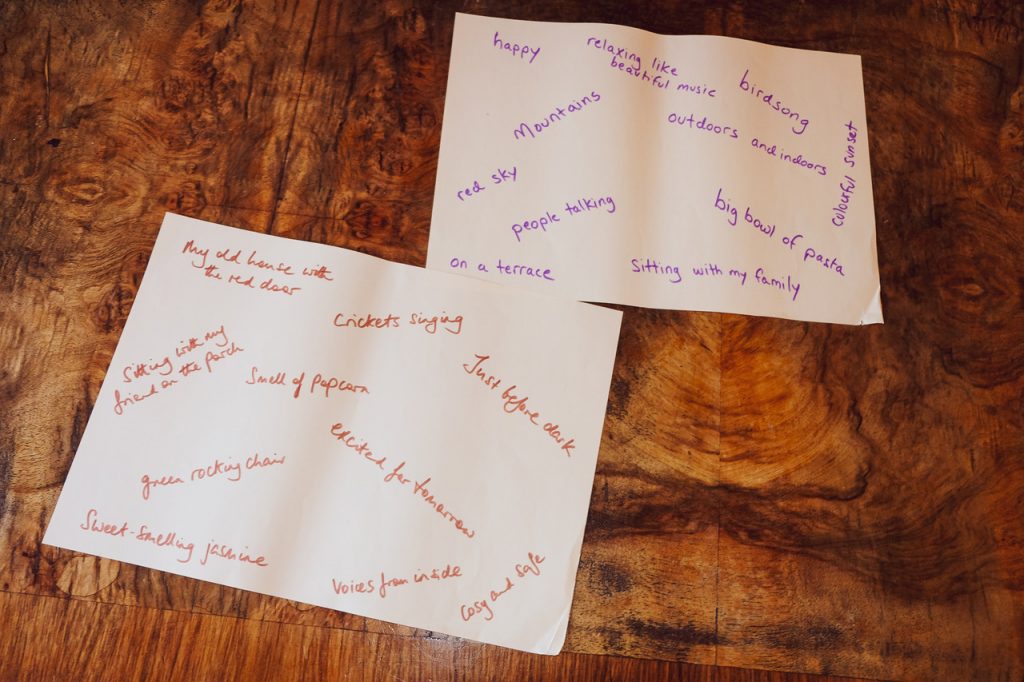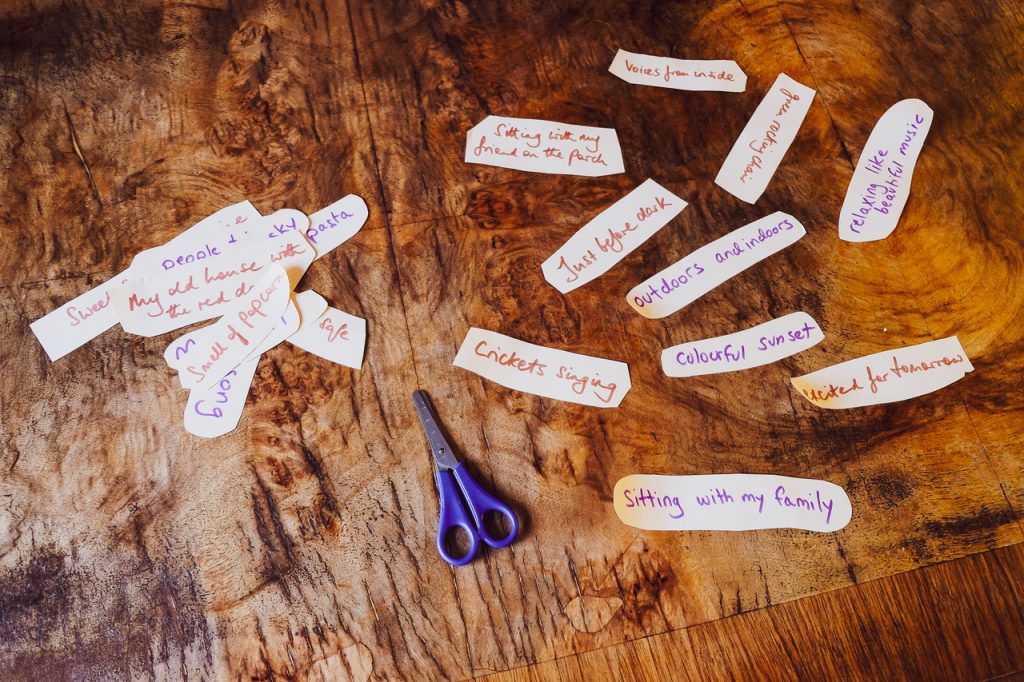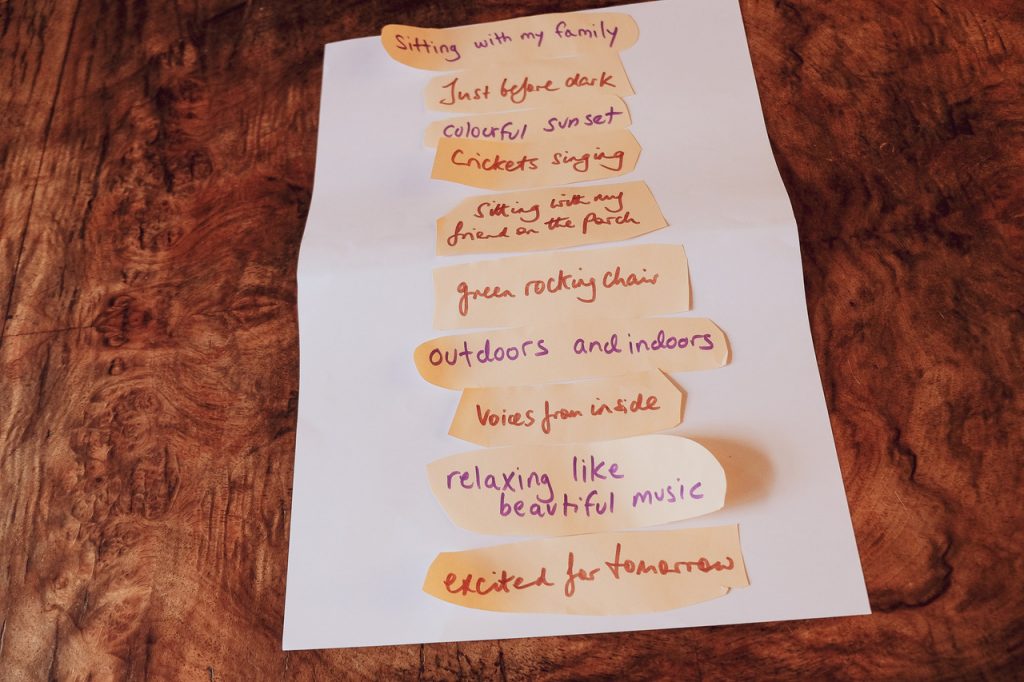A Poetic Re-visioning of the World
|
By Cheryl Moskowitz The current crisis is taking its toll on everyone. We are all having to learn new ways of coping with the ongoing uncertainty. There are some rules in place but most of us are discovering for ourselves how best to stay safe, cope with isolation, and lay plans for the kind of future we might want when this is all over.
Just Supposing…
you woke up tomorrow and there weren’t all these rules like: YOU HAVE TO STAY HOME! and: YOU CAN’T GO TO SCHOOL! And whatever you wished for, where to go, what to do, who to be with, how many – was all up to you. Where would it be, doing what, and with whom? Would you go to the park or fly up to the moon? You could go on a picnic or stay in your room. If you woke up tomorrow, restrictions all lifted – what kind of a world would you want to be gifted?
I’ve been talking to children in my local community (at a distance of course!) and using their responses to the question posed in the poem above to write new poems – poems that I hope can open up the possibility for continued conversation even after the current crisis is over.
If you are a parent at home or a teacher at school with children right now, why not have a similar conversation with them and see what poetry might come of it?
First, read the poem ‘Just Supposing…’ together. Then ask yourself, and the children you are with:
Responses to this question could be set in the past, present or future. Many of the children I’ve spoken to choose somewhere they want to go back to, a family gathering or a special time spent with friends. Some are sad about missing events that had to be cancelled because of the lockdown; school trips, holidays, birthday celebrations for loved ones. Some choose to travel in their imaginations to another country or even another universe – to go somewhere they’ve never been before. Some have chosen to stay right where they are.
How each of us responds is an indication of what we are missing most, what we most value and want to return to when the lockdown is over. The question also invites us to imagine new possibilities, and create afresh the world we want to be living in. Whatever the response is, go with it!
Close your eyes and imagine yourself in this place. Go through it with all your senses. What is it like, what would you see if you were there now, what sounds would you be hearing, what special smells or tastes might there be, what would you be doing, how does it feel to be there?
Now open your eyes and tell each other some of those things that came into your head when you were imagining being in your special place. If possible, you could scribe for one another. You could write down what the child tells you about their place, and they can write down what you tell them about yours. Write big and clearly and only use one of the paper – don’t write on the back as you will be cutting out all the separate bits of writing in a minute.
Try to think of at least two things for each sense – ie two things you can see in this place, two things you can hear and so on… not forgetting the sixth sense of emotion. How does it make you feel to be there? Sometimes we like a place or a situation because it allows us to be calm or quiet and reflective.
When you have each had a go writing down the descriptions of each other’s places, get some scissors and cut out each idea, so you end up with lots of scraps, like this. Now comes the hard bit. The choosing and editing. Look through all the pieces of writing that you have (those that came from your head and those that came from your child’s) and decide on ten pieces to use in your final poem. Discuss which you think work best. Perhaps because they contain words that look good written down, or sound nice when you say them or maybe because they work to capture the sense of what you were picturing in your head. The poem will combine bits from both your places.
Put the scraps that you are not using for the moment to one side (they can go in your ‘rainy day’ drawer to be used at another time). Now, look at the pieces of writing you have left and lay them out on a table or the floor.
Decide on an order that works. Maybe choose one you think would make a good first line and then decide what might follow it. A famous poet called Samuel Taylor Coleridge once said that poetry is the best words in the best order. You have already chosen your best words, now you just need to put them in the best order. Experiment. Move them around as if you were cutting and pasting on a computer screen. You can add linking words or take some away if you need to in order to make it work in the way you want it to. See what happens.
Do email us at dingdong@oldsite.artisfoundation.org.uk or tweet us with your poems. We would love to hear your creations! Happy writing! |
28 Apr 2020 |


















